C2G publishes conversations with experts in three formats: C2GTalk, C2GDiscuss, and C2GLearn.
C2GTalk is a series of one on one interviews with influential practitioners and thought leaders to explore the governance challenges raised by emerging approaches to alter the climate. Discussions touch on a range of ethical, cultural, economic, and political issues, whilst staying grounded in the practical and personal experiences of our guests.
C2GDiscuss is a series of moderated in-depth conversations between diverse experts on some of the governance challenges of climate-altering approaches. They aim to encourage an engaging conversation about some of the toughest questions faced by decision-makers on climate change, now and in the future.
C2GLearn is a series of online events, designed to catalyze learning about climate-altering approaches and their governance. Featuring leading international experts and practitioners, events include both formal webinars and informal "campfire chats," convened regularly throughout the year, with opportunities for questions and answers.
Recent Episodes

JAN 8, 2024 • Podcast
C2GTalk: Why does the world now need to consider solar radiation modification? with Kim Stanley Robinson
Many objections to solar radiation modification have been overtaken by events, says "The Ministry of the Future" author Kim Stanley Robinson in this "C2GTalk."
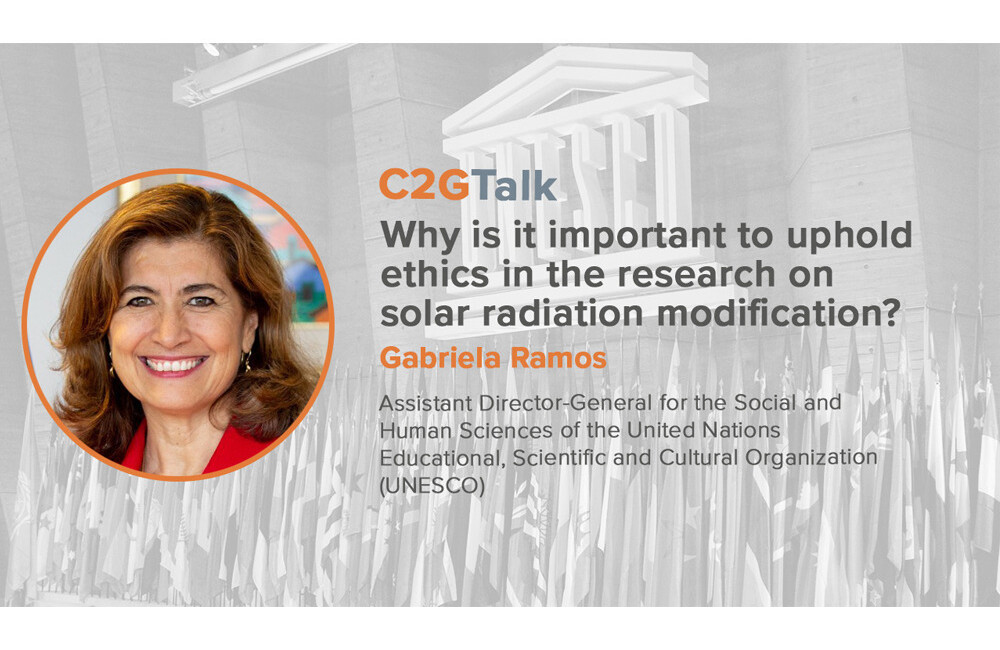
DEC 18, 2023 • Podcast
C2GTalk: Why is it important to uphold ethics in the research on solar radiation modification? with Gabriela Ramos
More research is needed to explore all aspects of solar radiation modification, including the technology and its impact on society, say UNESCO's Gabriela Ramos.
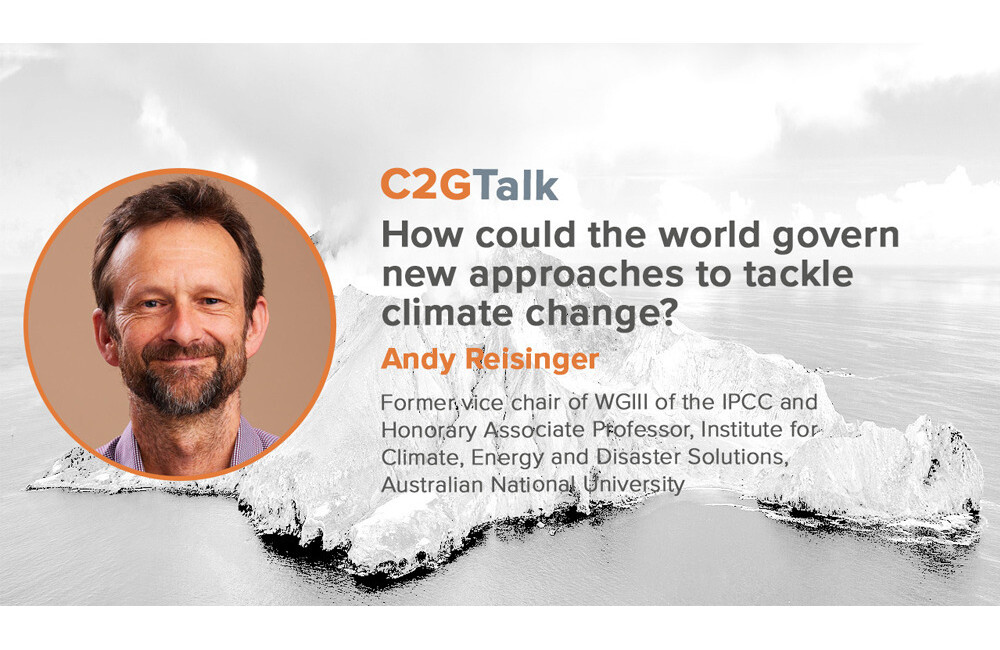
DEC 4, 2023 • Podcast
C2GTalk: How should the world govern new approaches to tackle climate change? with Andy Reisinger
The world is due to exceed 1.5°C warming, and countries will face more extreme consequences in the near-term, warns Andy Reisinger in a C2GTalk.

NOV 6, 2023 • Podcast
C2GTalk: Should Global South scientists engage in solar radiation modification research? with Inés Camilloni
It's important for Global South scientists from the Global South to be engaged in research and discussions around SRM because its potential impacts would affect ...
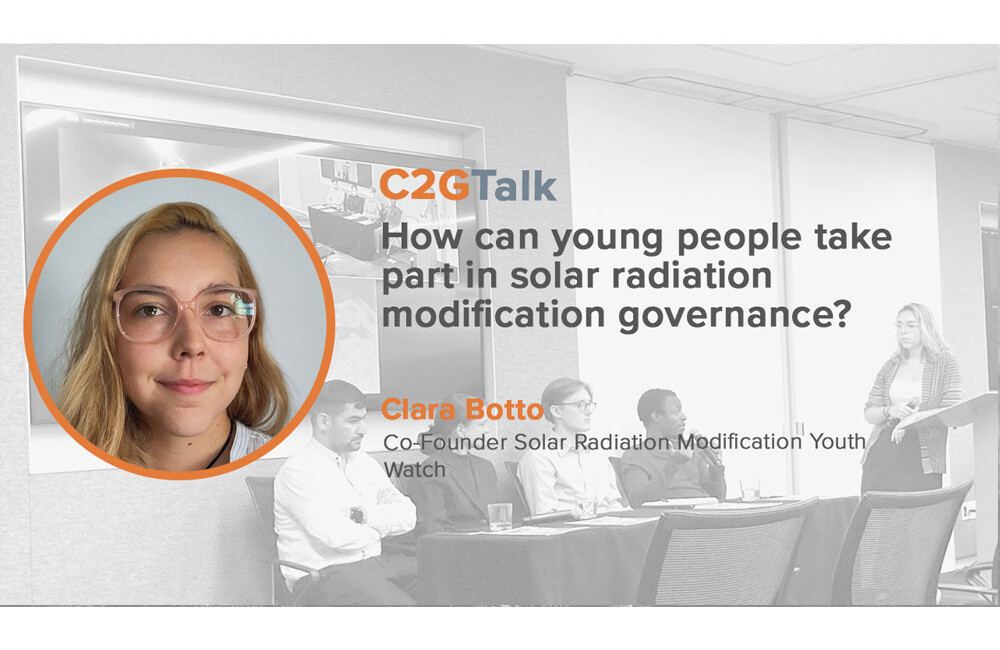
OCT 9, 2023 • Podcast
C2GTalk: How can young people take part in solar radiation modification governance? with Clara Botto
Young people need to learn more about solar radiation modification, and provide their inputs to governments, think tanks, and policymakers, says Brazilian climate activist Clara ...
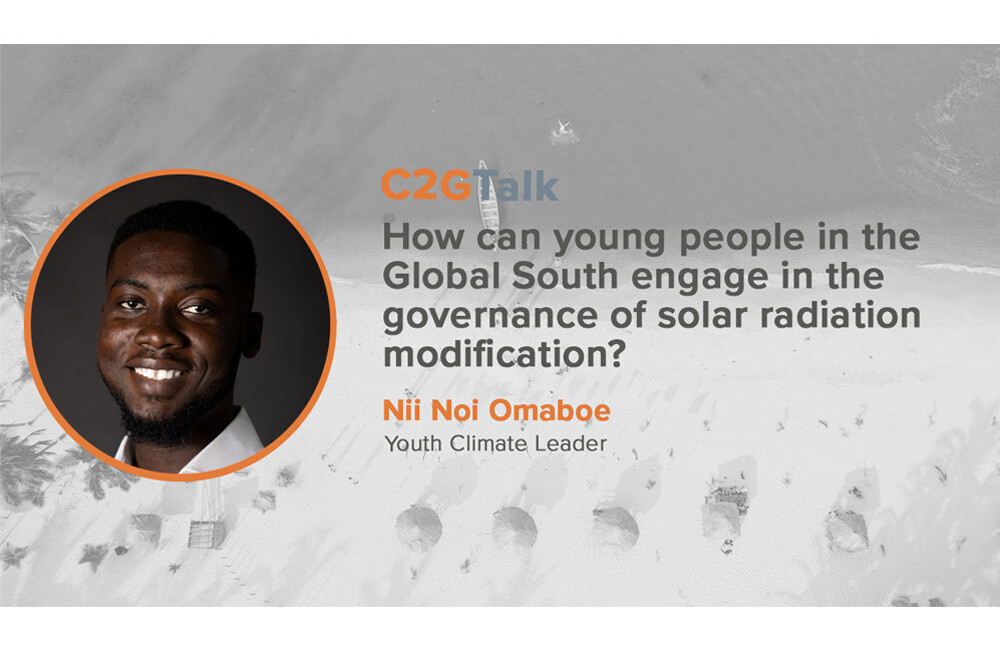
AUG 28, 2023 • Podcast
C2GTalk: How can young people in the Global South engage in the governance of solar radiation modification? with Nii Noi Omaboe
It is essential for young people in the Global South to become more involved in international climate discussions, says Ghanaian climate activist Nii Noi Omaboe.

JUL 31, 2023 • Podcast
C2GTalk: How can Global South civil society be engaged in deliberations about solar radiation modification? with Shuchi Talati
Consultation and engagement with civil society in the Global South is essential for inclusive SRM governance, says Dr. Shuchi Talati in this "C2GTalk."
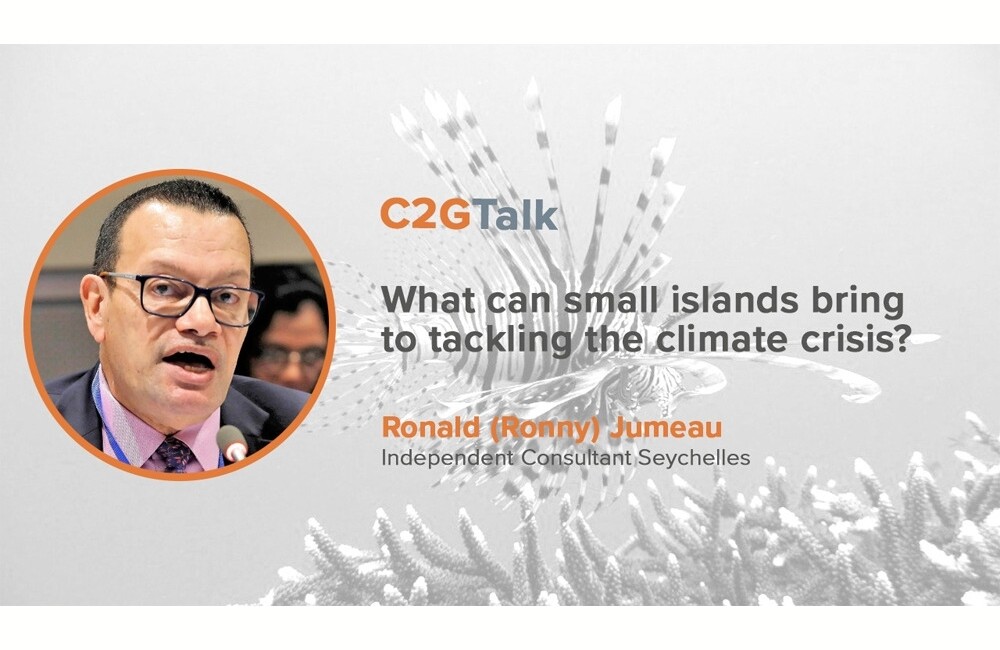
JUL 17, 2023 • Podcast
C2GTalk: What can small islands bring to tackling the climate crisis? with Ronny Jumeau
Small island nations, like the Seychelles, face devastating impacts from climate change. Ronny Jumeau outlines the expertise these nations bring to tackling the climate crisis.
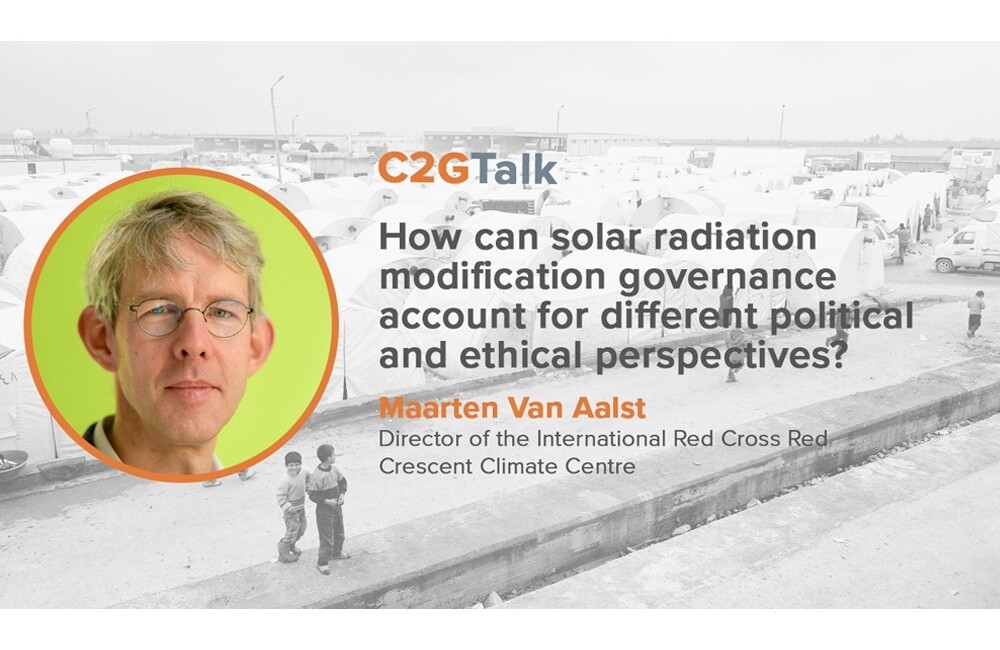
JUN 12, 2023 • Podcast
C2GTalk: How can solar radiation modification governance account for different political and ethical perspectives? with Maarten van Aalst
Solar radiation modification may one day be needed to reduce climate risks, but great uncertainties remain, and more research and inclusive governance is needed to ...
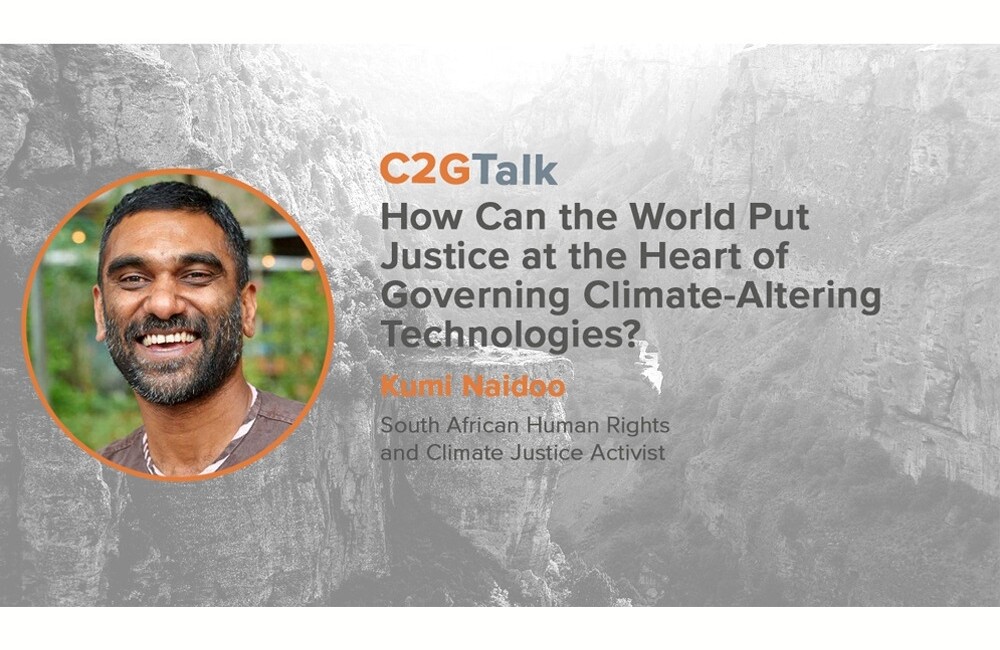
MAY 31, 2023 • Podcast
C2GTalk: How can the world put justice at the heart of governing climate-altering technologies? with Kumi Naidoo
Governing climate-altering technologies fairly will be very challenging, says Kumi Naidoo. Nonetheless, it will be crucial to put justice at the heart of these considerations.
